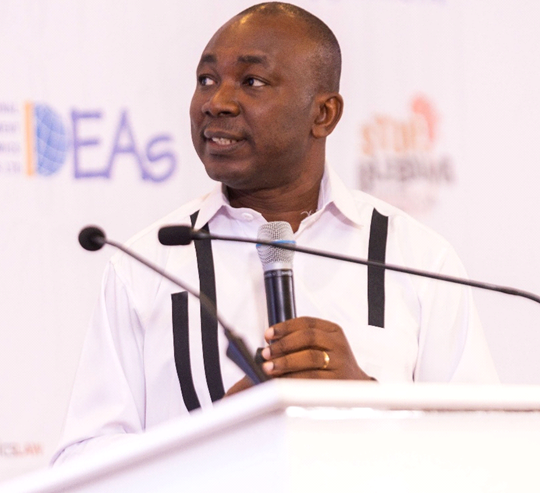By Kizito CUDJOE
With African artefacts increasingly being digitised, Economist and Finance Professor, University of Ghana Business School, Prof. Godfred Bokpin has warned that the continent could continue losing out to the Global North unless clear national and continental policies define ownership, access and who benefits from its heritage.
Prof. Bokpin noted that Africa has already lost the ‘first-mover advantage’ to advanced nations because of its failure to invest in digitisation, including apps and other emerging technologies and inability to catch up.
Speaking in an interview on the sidelines of a panel session on a draft Black Paper – a Pan-African, decolonial framing of Africa’s transformation – he argued that “the future is digital and the digital economy, an economy based on apps and emerging technologies, is expected to expand faster than traditional economies.”
Digitisation, he warned, is also set to “replace jobs”, a development that could cost Africa even more.
Against this backdrop, he cautioned that – when it comes to cultural artefacts and related works – digitisation has become a new form of colonising “our cultural artefacts”, particularly given the absence of proper digitisation frameworks and secure property rights.
He therefore said if immediate steps are not taken to introduce national and continental frameworks to secure ownership, Africa will in time embark on another campaign for digital justice and narrowing digital inequities.
It is to address this, he suggested, that pursuing digitisation must be integrated into the broader conversation on debt justice and reparations.
“It should be part of the conversation, because digitisation is not a standalone. It is a crosscutting intervention, part of the economic, social and religious contexts and others.”
He further said: “This is the kind of integrated approach we should be adopting; otherwise, we will lose out.”
This comes on the back of the African Union’s (AU) 2025 theme of the year: ‘Justice for Africans and People of African Descent Through Reparations’, which reflects the call to address historical injustices against Africans and the diaspora.
It will be recalled that several artefacts were recently returned to Ghana from both the United States and United Kingdom.
The United States museum returned seven royal artefacts looted 150 years ago, whereas the United Kingdom has returned 32 gold and silver treasures from the Asante kingdom on a six-year loan. These returned items include a sword of state, a gold peace pipe and other royal items.
The development was deemed a significant effort to repatriate cultural heritage.
The draft Black Paper panel session came on the back of the African Conference on Debt and Development (AfCoDD V) 5th edition in Accra.
AfCoDD V, a three-day event, was held under the theme Africa’s Debt Crisis: A Reparations and Reparative Justice Framework Analysis. The conference is organised by the African Forum and Network on Debt and Development (AFRODAD) in partnership with International Development Economics Associates (IDEAs) and the Stop the Bleeding Campaign.
The Black Paper addresses the political ideological framing of Africa’s Development agenda and situates the role of debt, IFFs and other economic factors that undermine the continent’s transformation pathway. The paper was developed under the Stop the Bleeding Campaign’s stewardship and seeks to provide a new roadmap for discourse in Africa on Development Finance.










